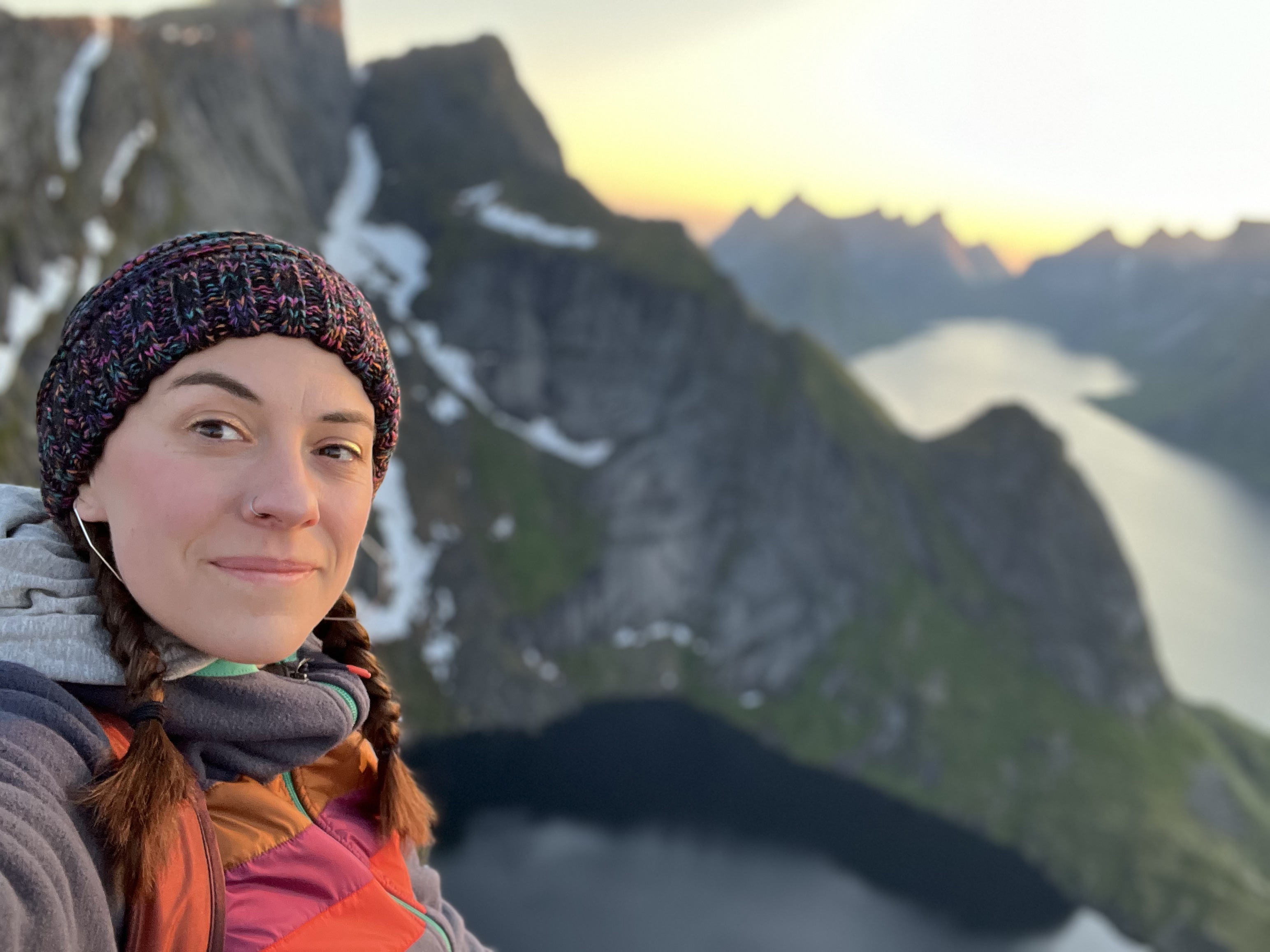Danielle Gartner
Current Hometown
East Lansing, MI
Born and raised
Mt. Pleasant, MI
About your picture...
Last summer, I traveled to a small town in Norway, located above the Arctic Circle to present at the Native American and Indigenous Studies Association conference hosted by the Sámi people. The conference was unreal. Indigenous people from across the world descended upon (and really took over!) this small town. The sun didn’t set the entire time I was there, and I took some time to vacation to Reine and climb the local mountain (Reinebringen). The view was incredible.
Favorite Color?
I love orange. At one point in my life, I had an orange car AND an orange cello case. Overboard? Never.
Favorite sport to play or watch?
Baseball. I love how laid back it feels. Please give me the long, drawn-out sport with very little action so I can catch up with my friends and sip on a beer without being bothered or interrupted.
What do you like to do in your free time?
I spend a lot of time these days playing pretend house with my four-year-old daughter. It is hardly a game, though, because I always must play the role of “mom”, during which I perform the same activities as always, but I’m supposed to be having “fun”.
What is the most helpful advice you have received?
A senior faculty member (and former Epi Department chair) at another institution once told me that American’s plan too much, especially regarding their research careers, grant applications, and paper writing. I think about this often, especially when I’m stressed about my future. I take this unsolicited advice to mean that it is okay, and even good, to leave a little room for spontaneity in our work.
What/who influenced you to select your area(s) of study and how has that impacted your career?
I’m lucky to have had so many incredible and impactful mentors but the one that is coming to mind right now is the late Dr. Steve Wing. I first learned about the field of epidemiology when I was working on my master’s degree in environmental justice. Epidemiologic studies gave numeric legitimacy and voice to poor communities and communities of color that bear the burden of corporate pollution. I learned about the three-mile island nuclear disaster and a cancer cluster study authored by Steve Wing through which he corrected a methodological error in previously published studies to demonstrate a link between radiation and cancer incidence there. These results were then used by community members to demand compensation and restitution. Years later, he was assigned to be my co-advisor (with the amazing, and ever so lovely Dr. Whitney Robinson, who deserves her own paragraph re: influence on my career) when I started the epidemiology doctoral program. Dr. Wing passed away from cancer in 2016. Many community members referred to him as “the people’s professor” and he is a profound example of how academics can be and how to use epidemiology to improve peoples’ lives.
Describe your current research or area of interest
Much of my research is in Indigenous health, where I describe disparities or what health equity might look like. But if I had limitless, deep pockets, I’d use research to better understand how we could all be the versions of ourselves that our ancestor’s dreamed we could/would be. I’d study and promote Indigenous joy, laughter, and love for community.
What advice would you give to a student?
It is never too early (or late!) to establish healthy and good work habits (e.g., time management, daily writing practice, etc.) that fit your work style and life needs. These are skills that anyone can learn and everyone must practice. I found the resources from the NCFDD (formerly the National Center for Faculty Development and Diversity) to be invaluable (and YOU have a free subscription to their materials through MSU).


